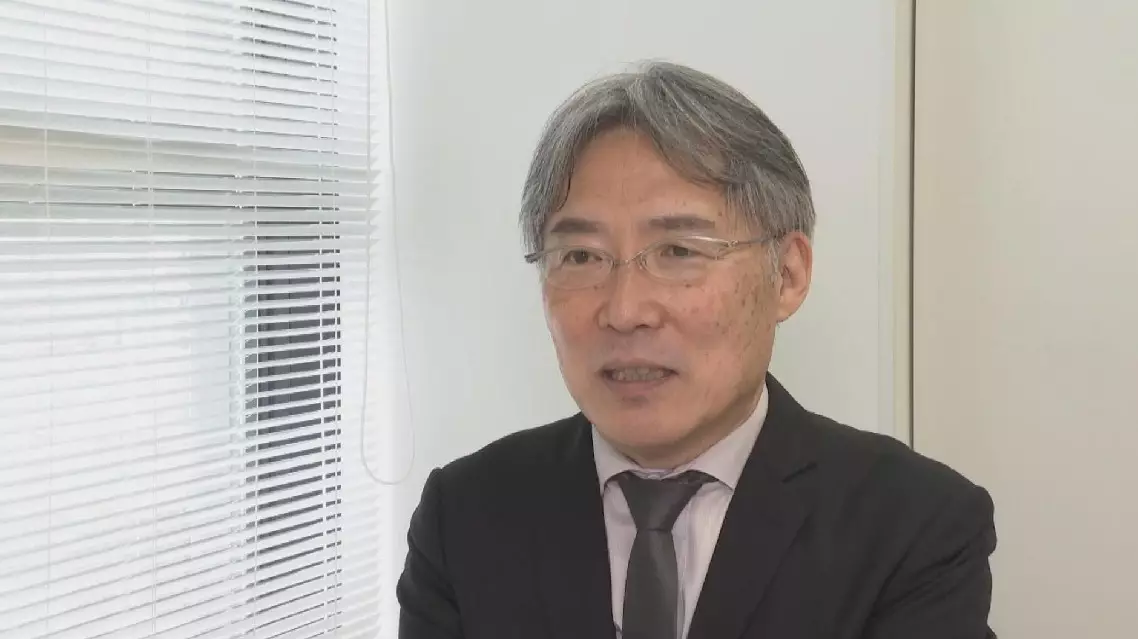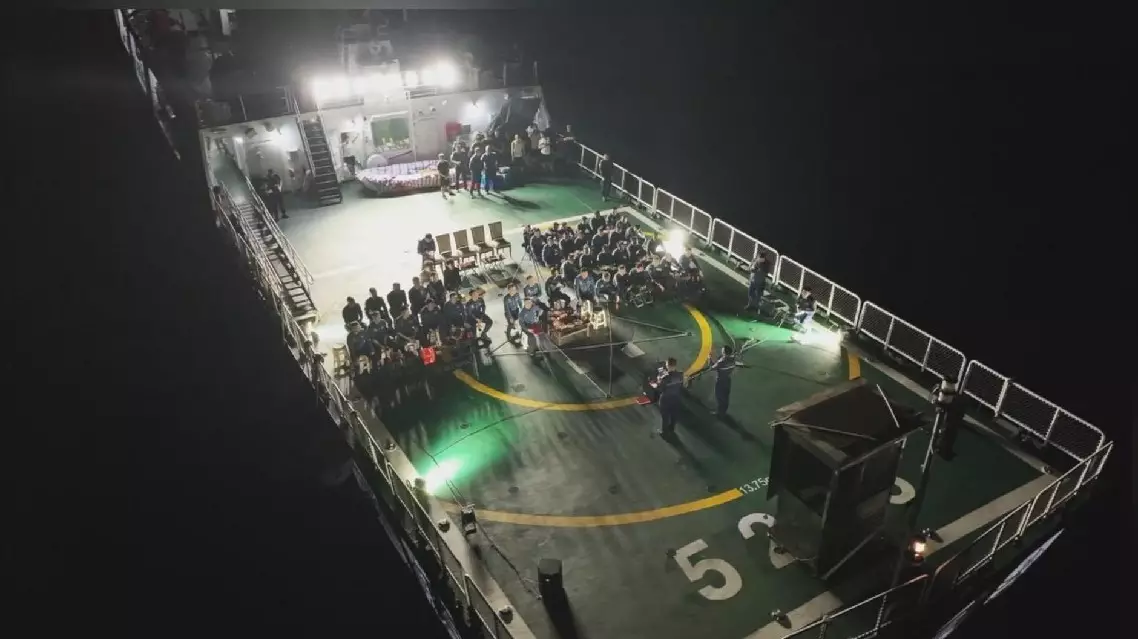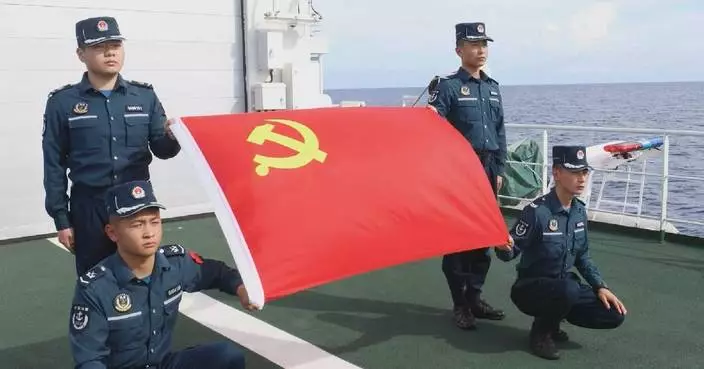The Japanese government and Tokyo Electric Power Company (TEPCO), the operator of the crippled Fukushima Daiichi nuclear power plant, should disclose information on the nuclear-contaminated wastewater that they are discharging into the sea in detail and accept scrutiny, acknowledging its fundamental distinction from industrial wastewater released by conventional nuclear power plants, said a Japanese scholar on Friday.
Japan on Friday started the seventh round of the release of nuclear-contaminated wastewater from the Fukushima Daiichi nuclear power plant into the Pacific Ocean.
Despite furious opposition both at home and abroad, TEPCO started discharging the radioactive wastewater in the morning, the third round in fiscal 2024.
The same as the previous rounds, about 7,800 tons of the wastewater will be discharged until July 16.
"The volume of nuclear-contaminated water is substantial, and the point is that it stems from a nuclear accident and differs from the radioactive wastewater discharged at low concentrations by conventional nuclear power plants. So, is the discharge really okay? Concerns have been raised by both the international community and within Japan regarding this issue. As a result, it is crucial to ensure proper handling of the nuclear-contaminated water and facilitate comprehensive discussions. At the core of this matter lies the need for information disclosure. It is essential to provide the Japanese public and the international community with the most up-to-date and accurate information. It is also necessary to establish a platform for discussions," said Yamada Kenta, a professor at School of Letters of Senshu University, in an interview with China Central Television (CCTV).
The lack of transparency from both TEPCO and the Japanese government regarding crucial information, including the meltdown of the nuclear reactor cores, the safety of the nuclear-contaminated water, and the decommissioning process has raised widespread concerns among the international community, the scholar noted.
"The lack of transparency in the information disclosure by TEPCO and the Japanese government concerning the nuclear accident is a significant problem. I personally share the view that it is a major issue. Moreover, at a technical level, the sluggish and interminable progress in the decommissioning of the Fukushima Daiichi nuclear power plant represents a substantial real problem as well," Kenta said.
Hit by an earthquake and an ensuing tsunami on March 11, 2011, the Fukushima Daiichi nuclear plant suffered core meltdowns that released radiation, resulting in a level-7 nuclear accident, the highest on the International Nuclear and Radiological Event Scale.

Japan should publicize details on nuclear-contaminated water, accept scrutiny: scholar
Three China Coast Guard officers, in a recent onboard interview, shared their stories of guarding the nation's maritime borders with dedication, pride and great love for the motherland and its people.
The China Coast Guard (CCG) is tasked with patrolling and enforcing law in the country's coastal areas and territorial waters, covering a span of up to three million square kilometers. That includes the South China Sea, where confrontations with foreign vessels have increased in recent years.
Officers serving on the vessel Huayang, which is tasked with patrolling missions in the South China Sea, talked about their hard work onboard in the interview with China Global Television Network (CGTN).
"Our electromechanical department functions like the heart of a person, facilitating the circulation of blood and guaranteeing power. We always keep a crew down here, where the temperature is around 40 degrees Celsius. It's basically one and a half hours for a shift, because the noise is too loud and likely to do significant harm to people who stay longer," said Li Shaoshan, an electromechanical officer.
"Shocking scenarios have occurred when we've confronted foreign vessels, including collisions and casualties. We need to respond successfully while avoiding such accidents. Through delicate commands, we could prevent infringements from the very start. My genuine feeling out of this is a sense of fulfillment in safeguarding the rights and interests of our motherland, as well as an even stronger sense of commitment," said Liang Yaohui, deputy captain of Huayang.
In between the tasks, the officers onboard held a recitation event.
"The poetry reflects our solemn commitment to our motherland. Loyalty is embedded in our duty. It is the underpinning, and the basis of our commitment. We Coast Guard shall, over the generations, pass it down. The assignment in the South China Sea has made it feel real that we are on the frontline. We're all in high spirits during operations," said Zhang Xueliang, a navigation officer.
Far away from their home and family, these officers overcome great challenges but yet stick to the post.
"Comparatively speaking, what I may feel to be challenging is the balancing between the month-long mission at sea and time with our family. Sometimes, the comforting words we tell ourselves are not very convincing. It sounds helpless and weak," Liang said.
"We don't have enough time to take care of our children's schooling. The other side of the phone says: You don't even care about their studies. Now our parents are aging, their physical conditions are getting worse and our time with them running out. I always feel I owe it to them," Li said.
"Home is the harbor, and also the momentum. Aside from faith, my strength comes from family. Every time a call connects, I feel free from any worries," Zhang said.
"Out of missing holidays, wedding anniversaries, and even scheduled weddings twice due to work, I believe missing out on my kid's birth was the most regrettable. Before we hung up the phone ahead of the delivery, my wife showed no sign of unhappiness at all. She tried not to put me under any potential pressure while I felt sorry for her," Liang said.
Day after day, year after year, it is these frontliners who serve the country with great love, responsibility and pride to defend China's sovereignty and territorial integrity.
"As we guard our three million square kilometers of territorial seas, we frontliners are on a glorious mission with great responsibility. Being a part of it makes me deeply proud," Liang said.
"We're determined and capable of guarding this ancestral sea," Li said.

Dedication and pride: Frontliners share passion for protecting maritime borders










